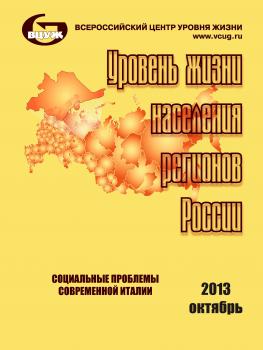A new trend in logical and methodological approach in scientific researches is considered. The following concepts are introduced: semantic lattice, the mental scheme, top wasps of a reasoning (theory), topic structures and followings, branchy structures as symmetry cells in system representation of a subject of the theory. Non-reducibility of thinking only to two (logical) ways deduction and induction, and non-reducibility of model of thinking only to logic are discussed. Four more ways of thinking of an eduction, subduction, traduction and production (LV Rutkovskiy – 21st century), components, together with deduction and induction «a logical square of ways of thinking» are considered. Four low-studied ways of thinking are characteristic not so much for «logic» as for «topics» (Aristotle) and the system analysis. Today the term «system» is widely used. There are no effective criteria of distinction between systems and pseudo-systems, no effective ways of establishment of structurally functional and other properties of what we decide to designate system. Planning contours of the system analysis in the aspect of the formalized structures thanks to what it is possible to use system designing of theoretical objects more effectively is the main aim of the article. Moreover, in modern scientific knowledge, there is a requirement (usually applied in the exact sciences): if something is called a system, the type of symmetry, a cell, a symmetry axis, spatial topology of system object have to be specified.
logic, topics, topos, semantic lattice, ways of thinking, the symmetry cell, systems analysis, systems modelling, system design, laws and properties of the system
1. Логика и Топика — дополнительные подсистемы интеллекта
В психологических монографиях, по кальке формальной логики, часто утверждается, что формой выражения мысли является суждение. М.К. Мамардашвили [1997, 3, 318 с.] считал, что появление мысли — событие редкое, ценное, грандиозное, и его невозможно выразить единичным суждением. Требуется пространное истолкование смыслов, заключенных в мысли. Причем одна и та же мысль, оставаясь собой, допускает великое разнообразие развертываний, раскрытий [Порус, 2002, 2, 322 с.]. Т. Адорно писал: «мысль пульсирует, пребывая в сжатии и расширении смыслов». По кальке логики в науке закрепилось утверждение о трех формах мышления: понятии, суждении и умозаключении. В окружающем мире велико разнообразие форм, неужели в мышлении, познающем мир всего три формы? Логика провозгласила себя «наукой о правильном мышлении», но еще Ф. Бэкон упрекал за эту самонадеянность логику, говоря, что многие после Аристотеля учили логику, но за 2 тысячи лет никто не поумнел, а заблуждения лишь умножились.
Во-первых, логика ограничена небольшим набором правил, придерживаясь которых, является продуктивной. Однако само мышление ориентируется на гораздо большее число критериев, ориентиров, принципов, законов и правил, чем те, о которых учит логика. У мышления судий больше, чем думает профессор логики. Поэтому правиль-
1. Rutkovskiy L.V. Osnovnye tipy umozaklyucheniya. - V kn.: Izbrannye trudy russkikh logikov XIX veka. M., AN SSSR, 1956, s. 22-331.
2. Porus V.N. Ratsional´nost´, nauka, kul´tura. M., 2002, 322 s.
3. Mamardashvili M. K., Pyatigorskiy A. M. Simvol i soznanie. M., 1997, 318 s.
4. Feofan Zatvornik, svyatitel´. Nachertaniya khristianskogo nravoucheniya. Svyato-Uspenskiy Pskovo-Pecherskiy monastyr´. 1994, s. 174-177.
5. Teplov B.M. Izbrannye trudy: V 2-kh t. M., Pedagogika, 1997, 244 s.
6. Artamonov G.N. Teoriya umstvennoy sfery. Monografiya. M., GUU, 2009, 353 s.
7. Artamonov G.N. Teoriya intellekta. Monografiya. M., GUU, 2009, 258 s.
8. Artamonov G.N. Funktsional´nye sistemy i obrazovaniya umstvennoy sfery. Monografiya. M., GUU, 2009, 318 s.
9. Losev A.F. Istoriya antichnoy estetiki. Poslednie veka. Kniga 2. M., Folio, 2000, 874 s.
10. Kondakov N.I. Logicheskiy slovar´-spravochnik. M., Nauka, 1975. 717 s.
11. Aristotel´. Topika. Soch., T.2. Μ., Mysl´, 1978, 350 s.
12. Mikeladze Z.N. Chto takoe «Topika» Aristotelya? - Voprosy filosofii, 1979, № 8, s. 110.
13. Puankare Zh.A. Matematicheskoe tvorchestvo. M.: 1980, s. Z0Z.
14. Gaydenko P.P. Nauchnaya ratsional´nost´ i filosofskiy razum. M., Progress-Traditsiya, 2003, c. 21.
15. Makovel´skiy A.O. Istoriya logiki. M., Nauka, 1967, 795 c.
16. Trubetskoy S.N. Uchenie o Logose v ego istorii. M., Folio, 2000, 337 c.
17. Bakhtin M.M. Estetika slovesnogo tvorchestva. M., Iskusstvo, 1986, 362 c.
18. Kant I. Kritika chistogo razuma. M., Mysl´, 1964, T.3, 221 s.





